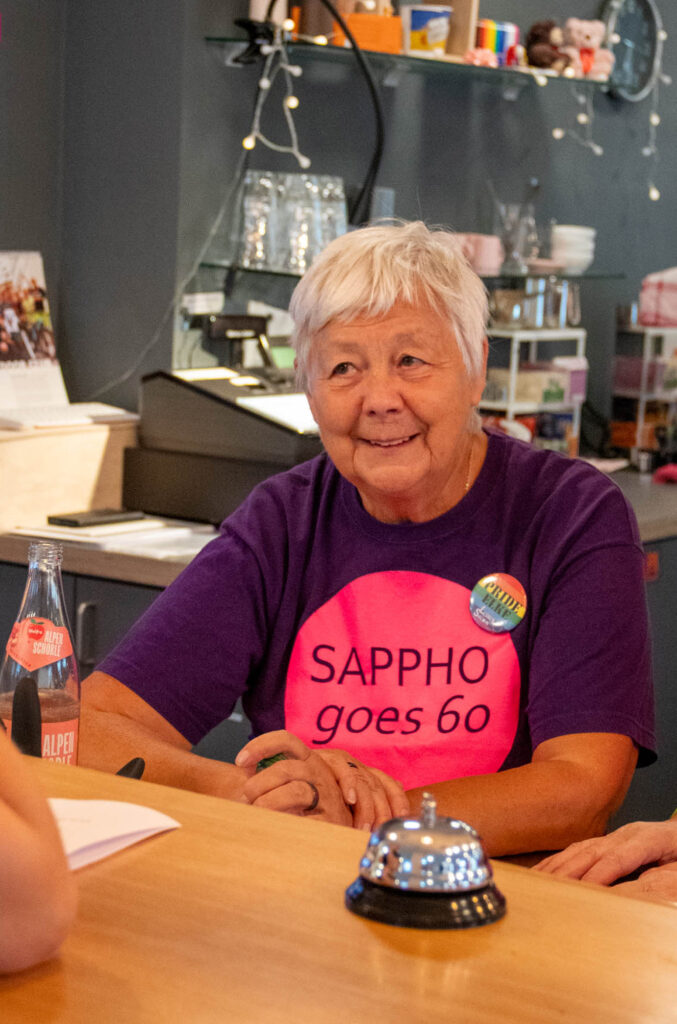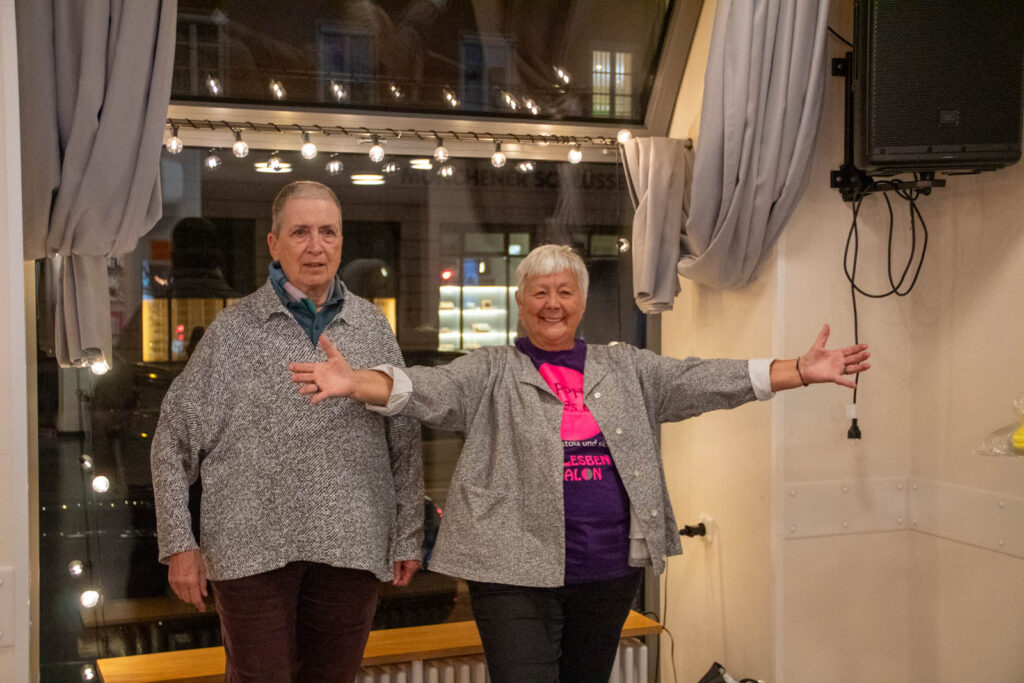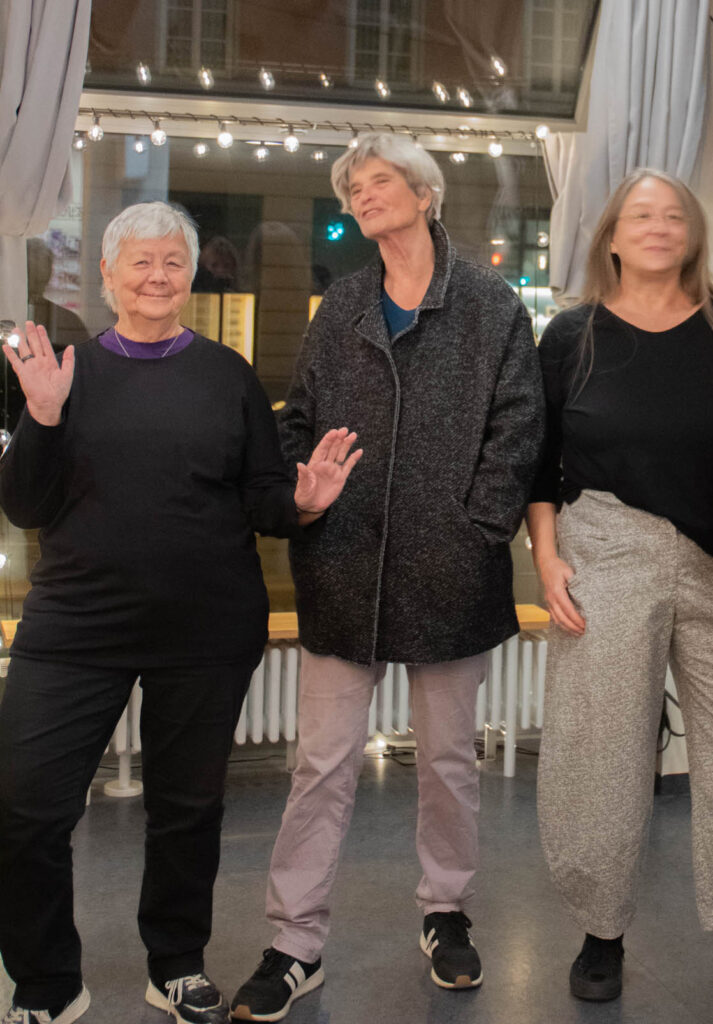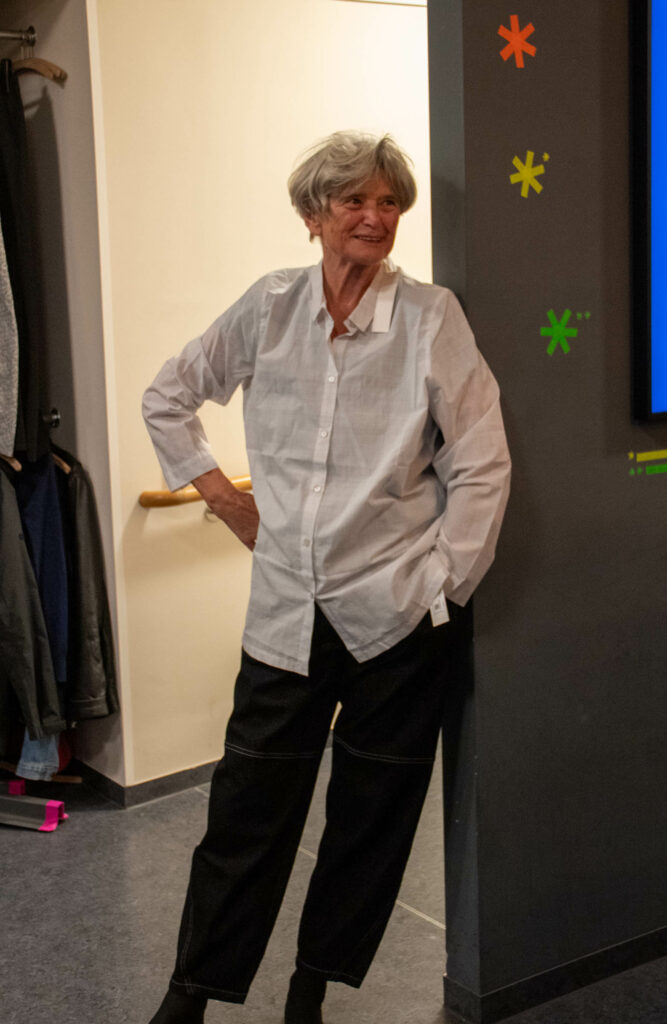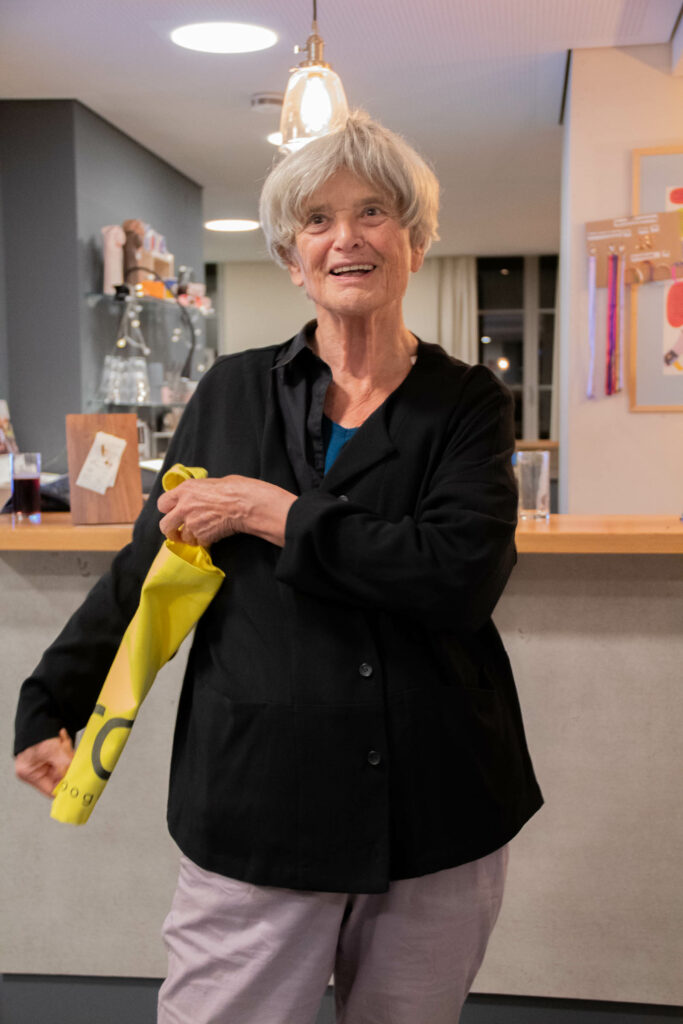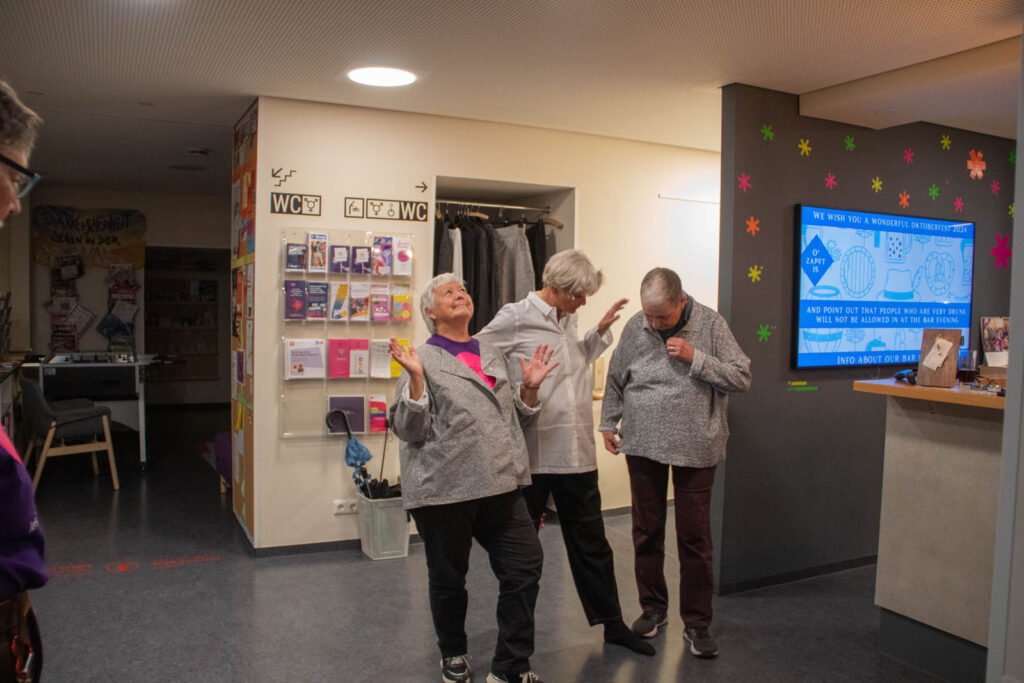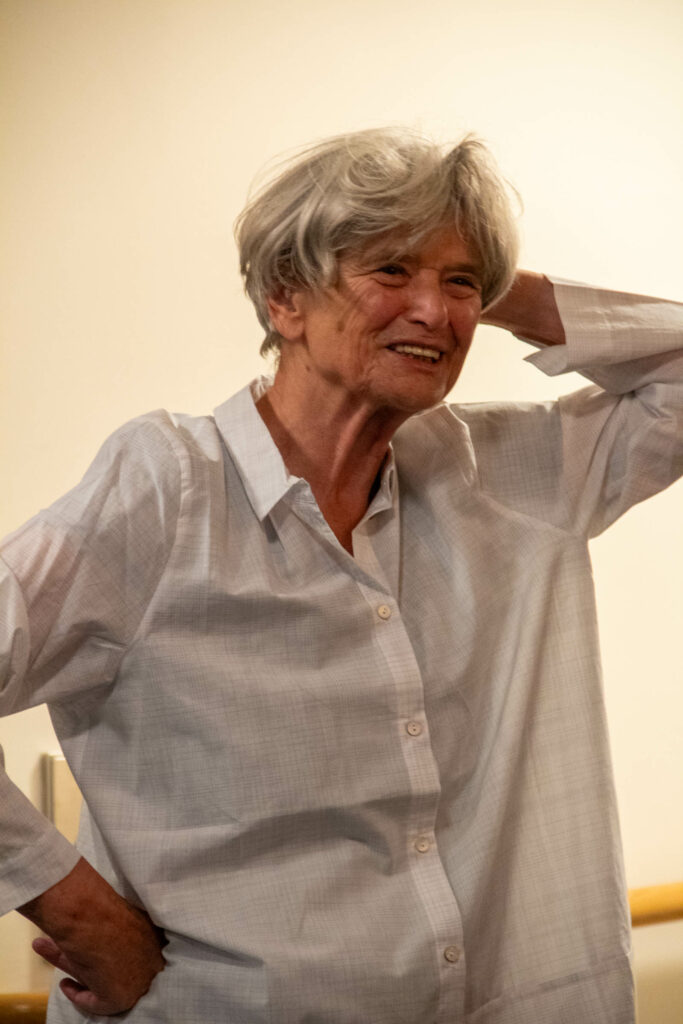Queer in Munich
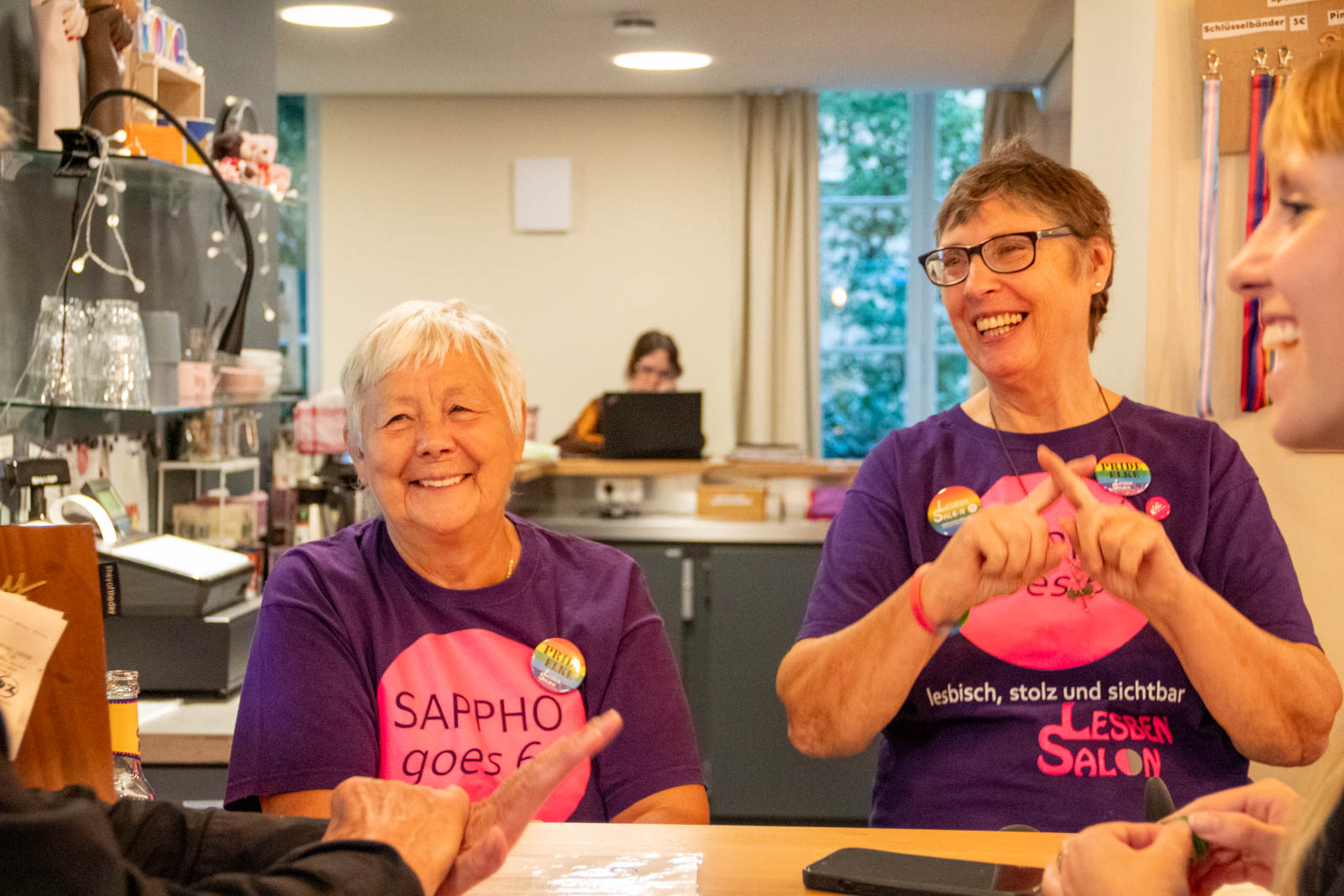
A SPECIAL WELCOME TO ALL!
For our new re.story, we took a look around Munich's queer scene and spoke to various women about their lives and their tireless efforts on behalf of the LGBTQI+ community. They share their personal stories of times of change and resistance, the challenges and successes of their work and how they have built a strong network today.
These women are role models who have paved the way for an open society and created new spaces for cohesion. Their lives show how important courage, community and speaking out are - and how valuable each individual story is along the way.
Elke
Elke grew up in Hamburg. Even at the age of twelve, she realised that she was different from the girls around her. Playing football, climbing trees and still being with girls - that's what she wanted. She couldn't really categorise this at the time because, unlike today, there weren't really any role models or information for queer young people.
At a Protestant boarding school, she felt attracted to another girl for the first time. When this very girl said to Elke: ‘Oh dear, I think I like women, I think I'm a lesbian’, her first thought was: ‘What's that?
In 1974, Elke moved to Berlin, where her first love lived. The new city and heartbreak led her to discover a whole new world. She immersed herself in Berlin's queer scene. When Elke was asked in a lesbian bar whether she wanted to co-found the LAZ - the Lesbian Action Centre Berlin - she was initially overwhelmed... That's political!
However, she joined the movement and fought for equal rights together with the other women. They drew attention to the lesbian feminist movement with actions and protests - despite discrimination and resistance. They were recognisable by their purple dungarees and lumberjack shirts.
When Elke came to Munich in 1984, she took over a small hotel at Schliersee. It quickly became a popular meeting place for the lesbian community, a place to celebrate, eat (vegan) food and socialise. When the hotel was to be used for other purposes, Elke opened her own small organic shop in Munich.
Today, Elke is involved in the organisation team of the Lesbian Salon in Munich, where she continues to campaign for visibility and equal rights - showing that the fight for an open and respectful society never stops.
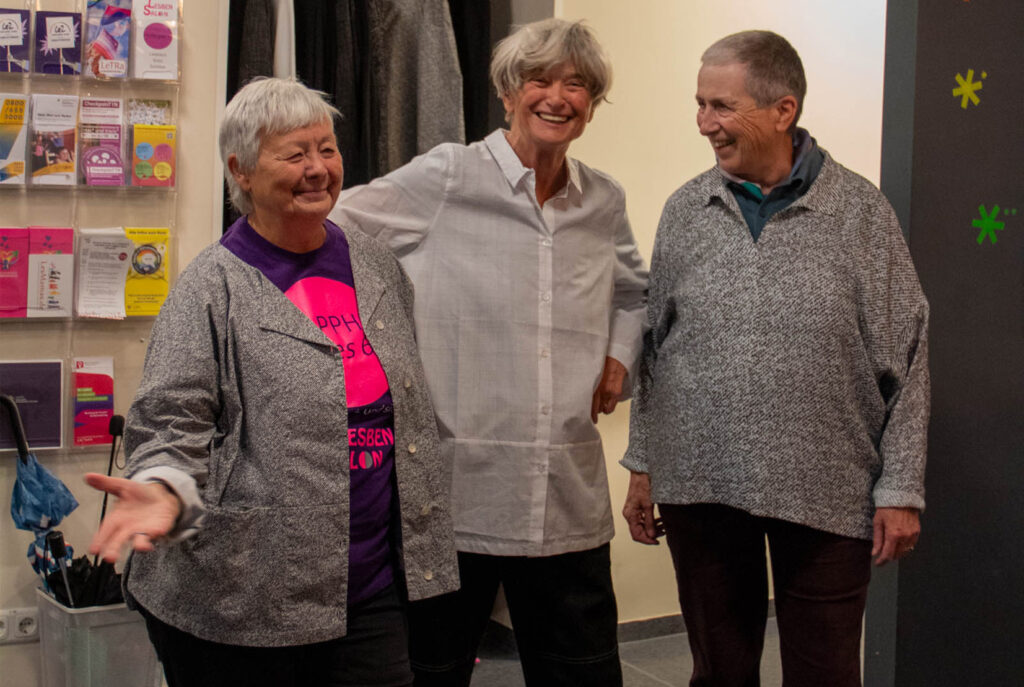
How queer was Munich back then and how is it today?
In the 1980s, Munich was a place of new beginnings, full of political commitment and activism in the queer community. In addition to pubs for women, Germany's first women's bookshop was established, which not only offered literature but was also an important meeting place for women and the LGBTQI+ scene. Queer health and therapy centres emerged and there were numerous demonstrations and protests. The networking of the queer scene was strongly characterised by the desire to secure the movement and carry it forward.
Elke explains that activism comes and goes in waves. Those who fight tirelessly reach their limits at some point, and if the younger generations do not continue to fight with the same energy, the movement threatens to flag. And it has felt this over the last few decades. At the end of the 1980s and beginning of the 1990s, much centred around the preservation of hard-won freedom. But at the end of the 1990s and into the 2010s, the movement came to a kind of standstill. Today, the community is increasingly facing headwinds, queer centres are the target of vandalism and discriminatory encounters are becoming more frequent at CSDs. Now more than ever, it is important to keep campaigning for equal rights.
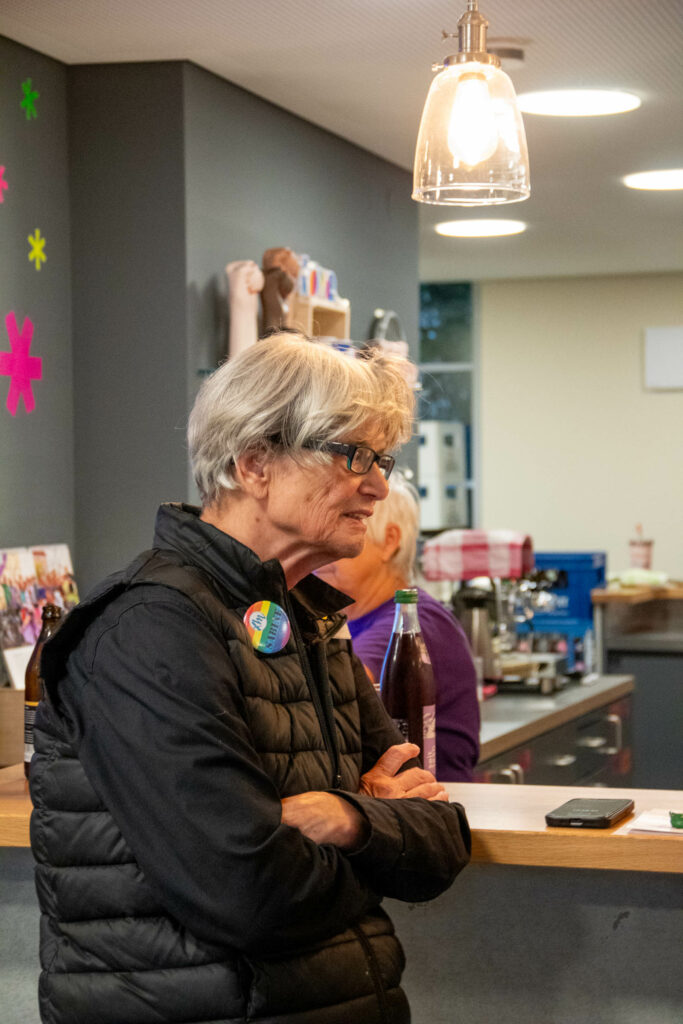
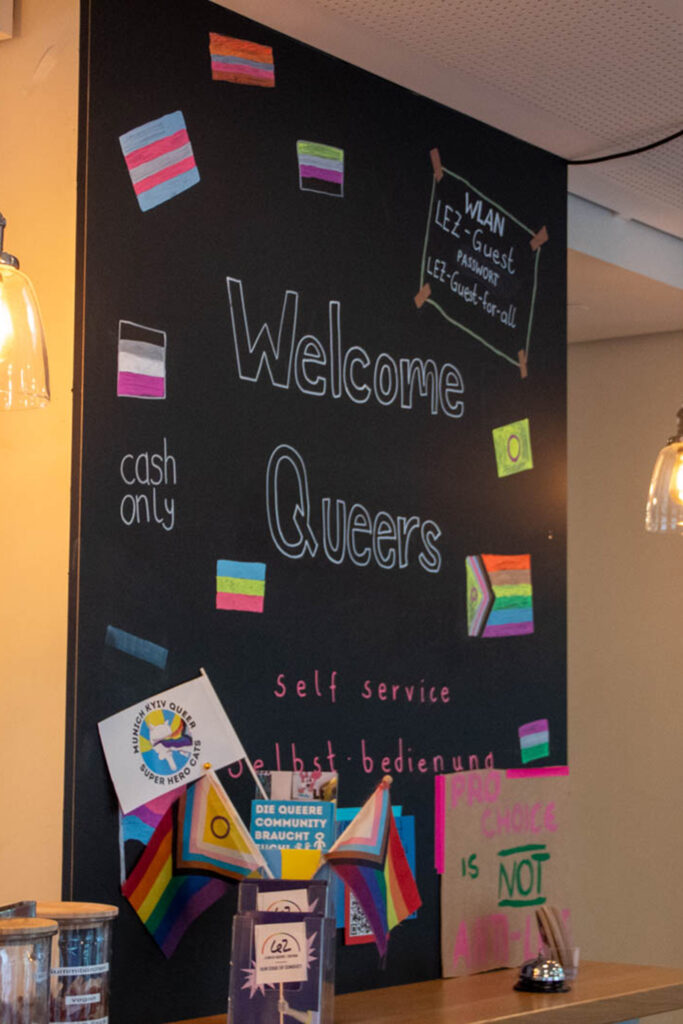
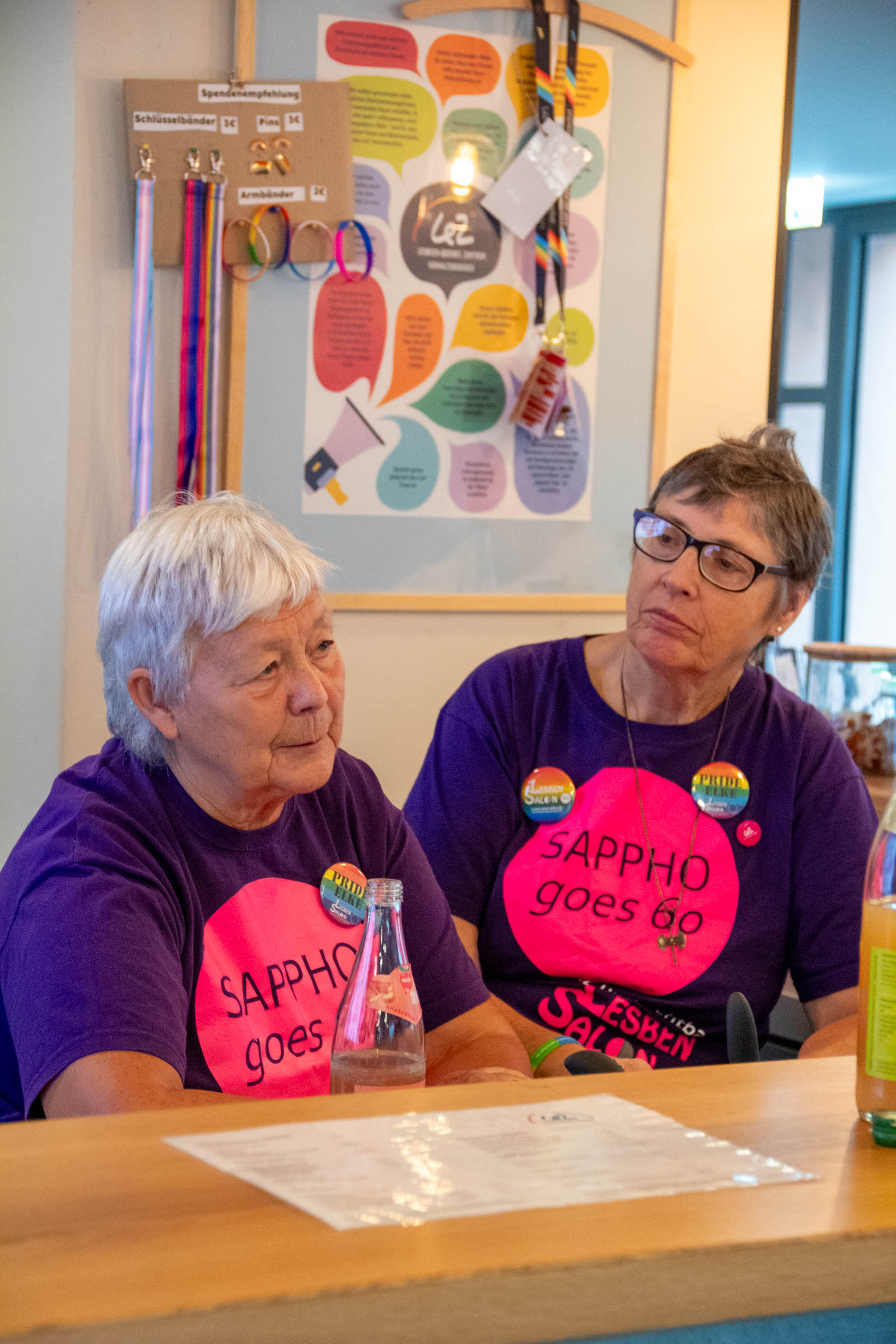
Sabine
Sabine realised early on that she was different to what was expected of girls in her environment. Her brother was allowed to do much more than her and her sister. This awakened in Sabine the desire to free herself from traditional role models. This attitude often led to conflicts in her family. In her youth, Sabine read the book ‘Winter Love’ - a story about love between women. It reflected society's view of lesbian women and helped her to understand her own identity.
At the age of 17, Sabine discovered the subculture in Hamburg - an alternative scene that set itself apart from the social norm. After training as a bookseller, she moved to Munich to make a fresh start. There she joined the feminist women's movement. In 1975, she and five other women founded ‘Lillemor's’, the first women's bookshop in Germany - a space for feminist literature, exchange and solidarity. She later initiated projects such as the Fenoptika Women's Culture Week, established the Wendo self-defence method in Germany and founded the Scala Women's Film Initiative, a place for films by and for women.
Sabine belongs to the generation that became politicised in the late 60s and early 70s. Together with other women, she continues to fight against patriarchal structures and conservative family policies to this day. ‘We were fed up with being patronised by men,’ she says today. Resistance to Section 218 and campaigning for self-determined sexuality in particular characterised this period.
In this liberating atmosphere, lesbian women also found their identity and fought for equal rights together with heterosexual feminists. Sabine and her fellow campaigners raised public awareness of lesbian lifestyles and contributed to the LGBTQI+ community being able to live more visibly and freely today.
In 2011, Sabine founded the Lesbian Salon together with Lising Pagenstecher and Christine Schäfer - a meeting place for older lesbian women who are now between 55 and 94 years old. Here, the women find support and space to live lesbian lifestyles as equals and make them visible. Sabine takes over the bar every third Thursday of the month and describes the Lesbian Salon as a meeting place where solidarity and acceptance take centre stage.
Award for Sabine
When we visited the women a second time at the LEZ, Sabine and all her friends were celebrating her award from the city of Munich: the ‘München leuchtet - Den Freundinnen und Freunden Münchens’ medal in bronze. This honour recognises her incredibly important contribution to the women's, lesbian and LGBTIQI+ movement and her work for more acceptance and visibility.
Sabine hopes for more solidarity within the LGBTQI+ community. ‘We all know discrimination and exclusion,’ she emphasises. ’If everyone is accepted, by everyone, if differences are openly and constructively tolerated and dealt with, we all make an active contribution to ensuring that diversity continues to thrive in the community in the future.’ For Sabine, the utopia of a supportive and appreciative community remains a goal worth fighting for.
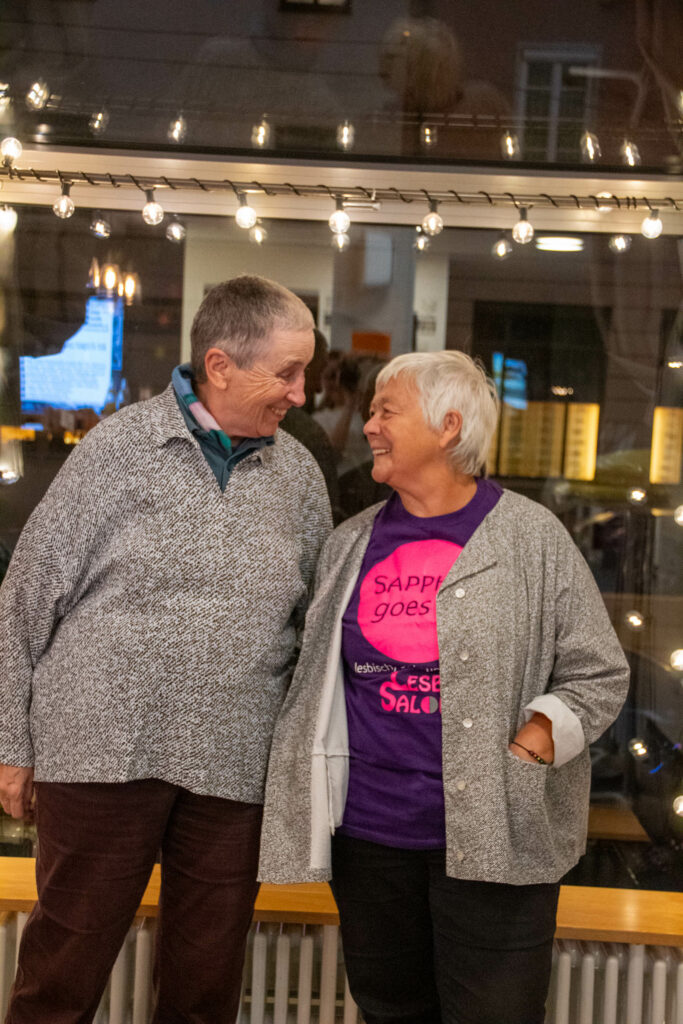
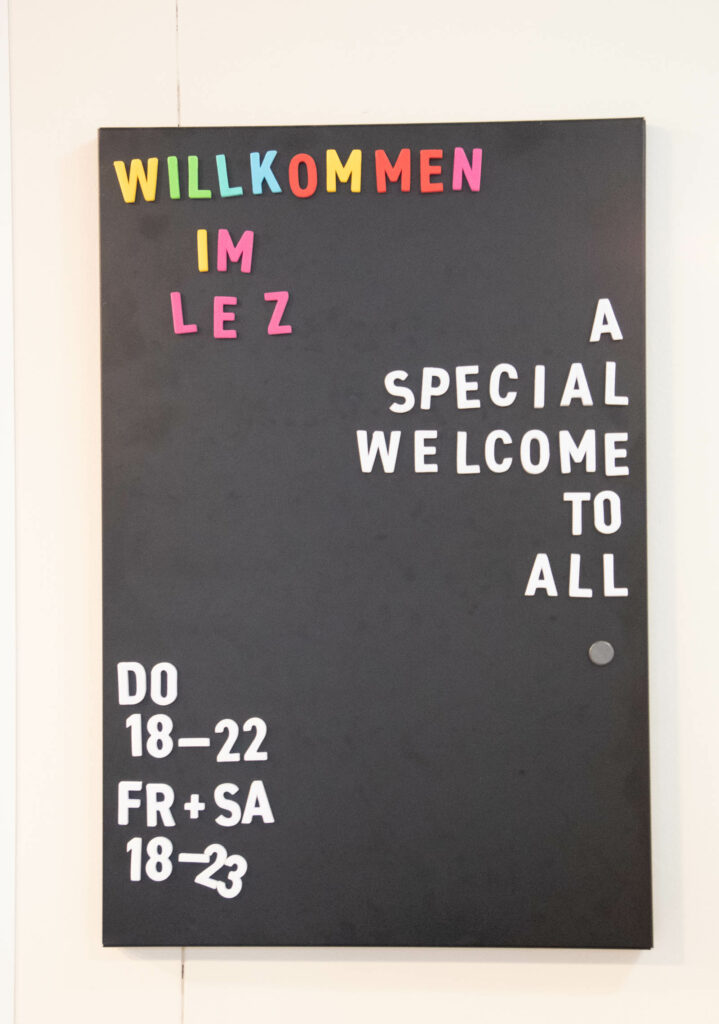
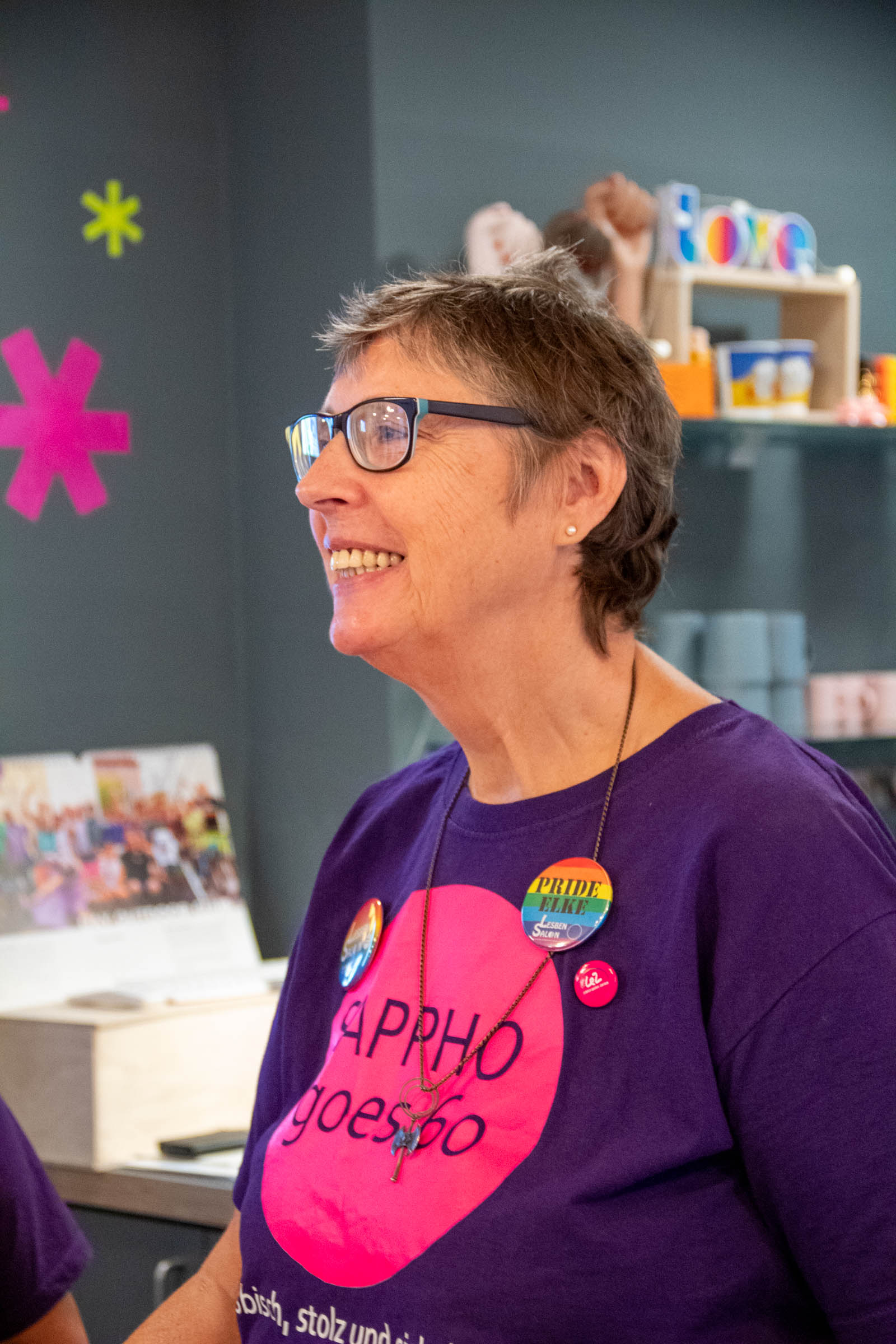
On our Instagram channel for even more insights. Visit us there to make sure you don't miss anything. 💛

